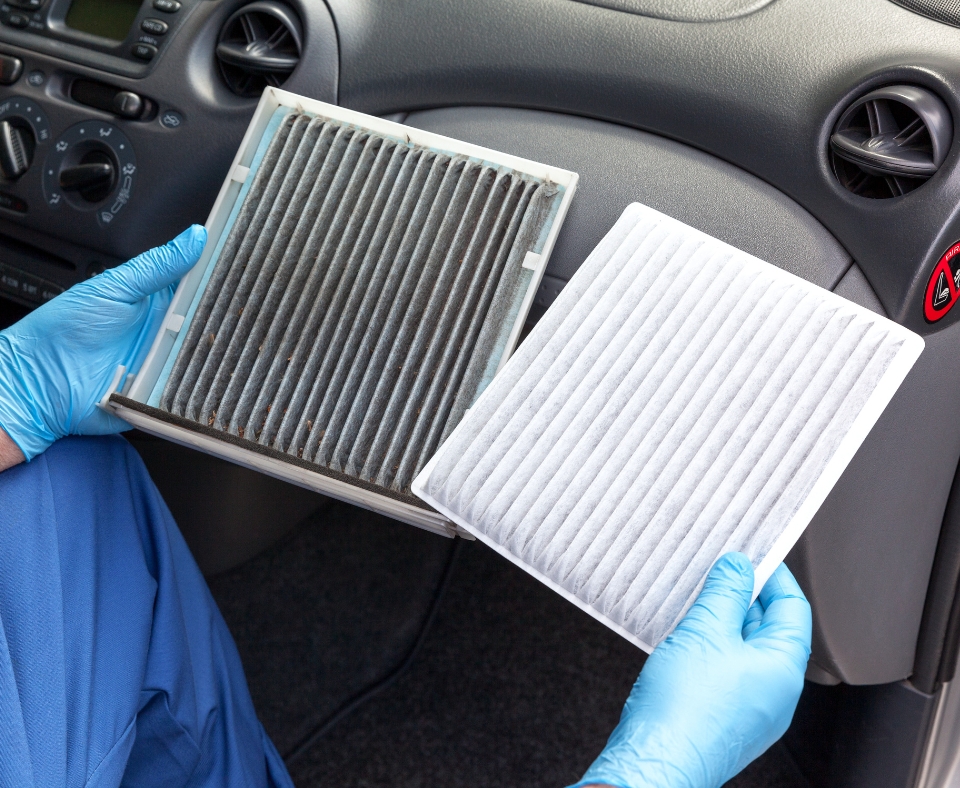How Often Should You Change Your Cabin Air Filter? Understanding the New VDI 6032 Guidelines

The German VDI 6032 guideline, issued by the Association of German Engineers (VDI) and the German Association of the Motor Trade (ZDK), sets new standards for maintaining optimal air quality in vehicles, with a specific focus on cabin air filters.
These guidelines emphasize the importance of regularly changing cabin filters to prevent health risks caused by contaminants such as bacteria, mold, pollen, and harmful gases that can accumulate inside vehicle cabins.
Why Clean Cabin Air Matters
According to the World Health Organization (WHO), around 99% of the world’s population breathes air that exceeds acceptable pollution levels, leading to severe health issues.
In confined spaces like vehicle cabins, the concentration of pollutants can be even higher. The International Council on Clean Transportation (ICCT) reports that in Germany alone, approximately 13,000 people die annually due to car exhaust pollution, almost five times the number of deaths caused by traffic accidents.
Air pollution inside a car can also affect a driver’s health and cognitive abilities, increasing the risk of accidents. Pollutants such as fine dust, VOCs (Volatile Organic Compounds), nitrogen oxides, and carbon dioxide enter the cabin through ventilation systems or are released from vehicle materials, contributing to poor air quality.
This makes it essential to replace cabin air filters regularly to protect passengers from these harmful contaminants.
New VDI 6032 Standards: When and Why to Change Cabin Filters
The VDI 6032 guideline recommends replacing cabin air filters every 12 months or every 15,000 kilometers, whichever comes first. These intervals ensure that the filter’s ability to trap dust, pollen, and bioaerosols is maintained, preventing the growth of bacteria and mold.
Filters that are not changed on time can become a breeding ground for microorganisms, which can spread into the vehicle’s air, reducing the filter’s effectiveness and potentially harming occupants (VDI.de).
Eurogielle’s Advanced Filtration Solutions
To meet these strict standards, Eurogielle offers a range of advanced cabin air filters designed specifically for automotive, heavy-duty, and agricultural vehicles.
Using Bacterstop technology, Eurogielle’s filters provide effective antiviral and antibacterial protection, while Dryfilter technology ensures optimal filtration in extreme conditions.
The combination of these technologies helps prevent the accumulation of harmful particles and microorganisms, significantly improving cabin air quality.
Furthermore, Eurogielle’s filters with activated carbon layers reduce exposure to harmful gases and eliminate unpleasant odors, offering a comprehensive solution for clean and safe vehicle interiors.
The Benefits for Distributors and Workshops
 For distributors and automotive workshops, adopting high-quality cabin air filters is a step towards differentiation and customer satisfaction.
For distributors and automotive workshops, adopting high-quality cabin air filters is a step towards differentiation and customer satisfaction.
As awareness of in-cabin air quality grows, customers increasingly seek products that not only meet basic filtration needs but also provide enhanced protection against pollutants.
By offering filters that meet VDI 6032 guidelines, distributors can position themselves as industry leaders committed to driver health and safety, aligning with current market trends focused on well-being and sustainability.
Conclusion
Regular replacement of cabin air filters, as recommended by VDI 6032, is crucial to maintaining a healthy and safe environment inside vehicles. Eurogielle’s advanced filters, equipped with Bacterstop and Dryfilter technologies, provide an effective solution to keep contaminants at bay. Ensuring clean air isn’t just about comfort—it’s about protecting health and enhancing the longevity of the vehicle’s ventilation system.